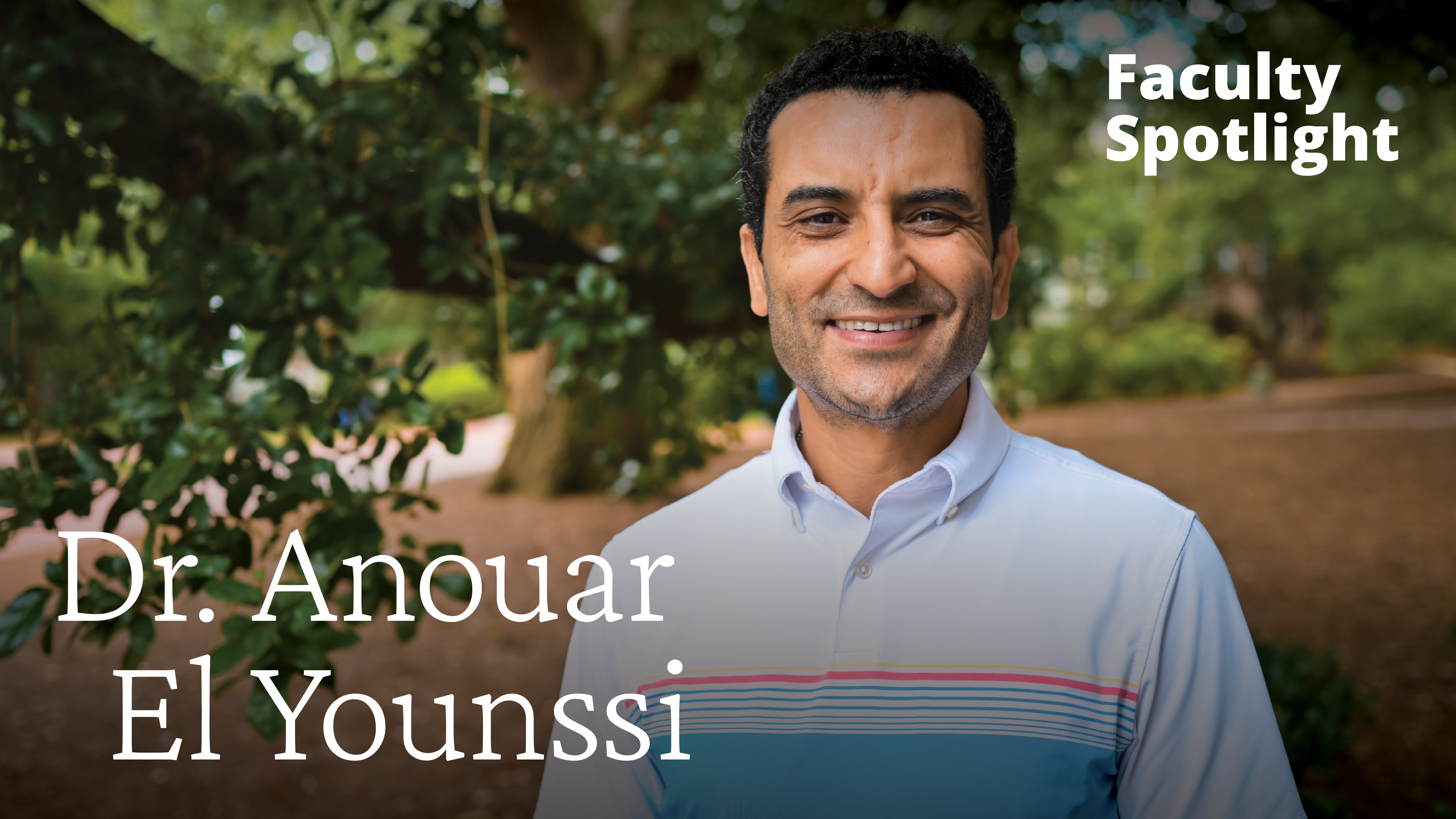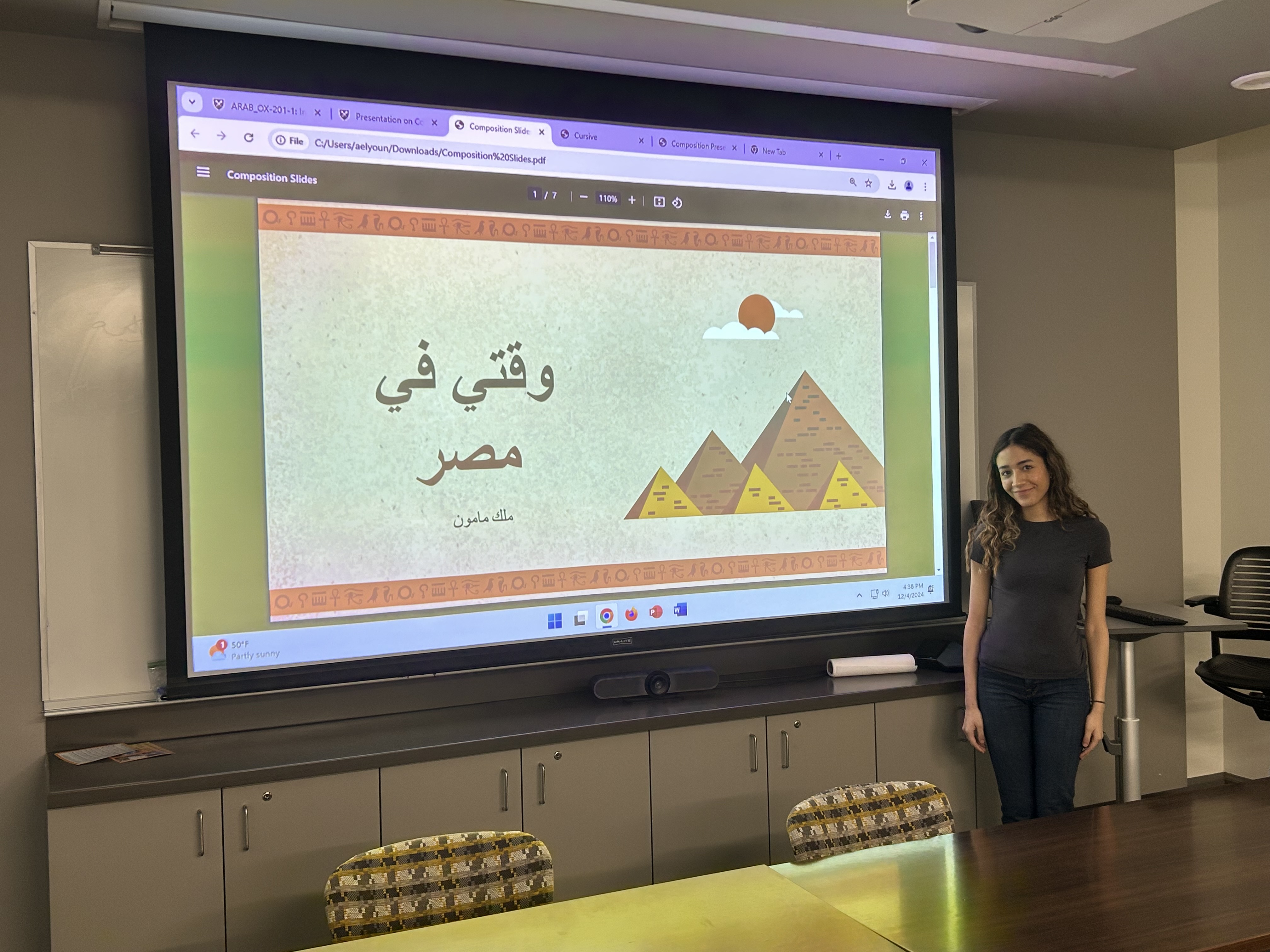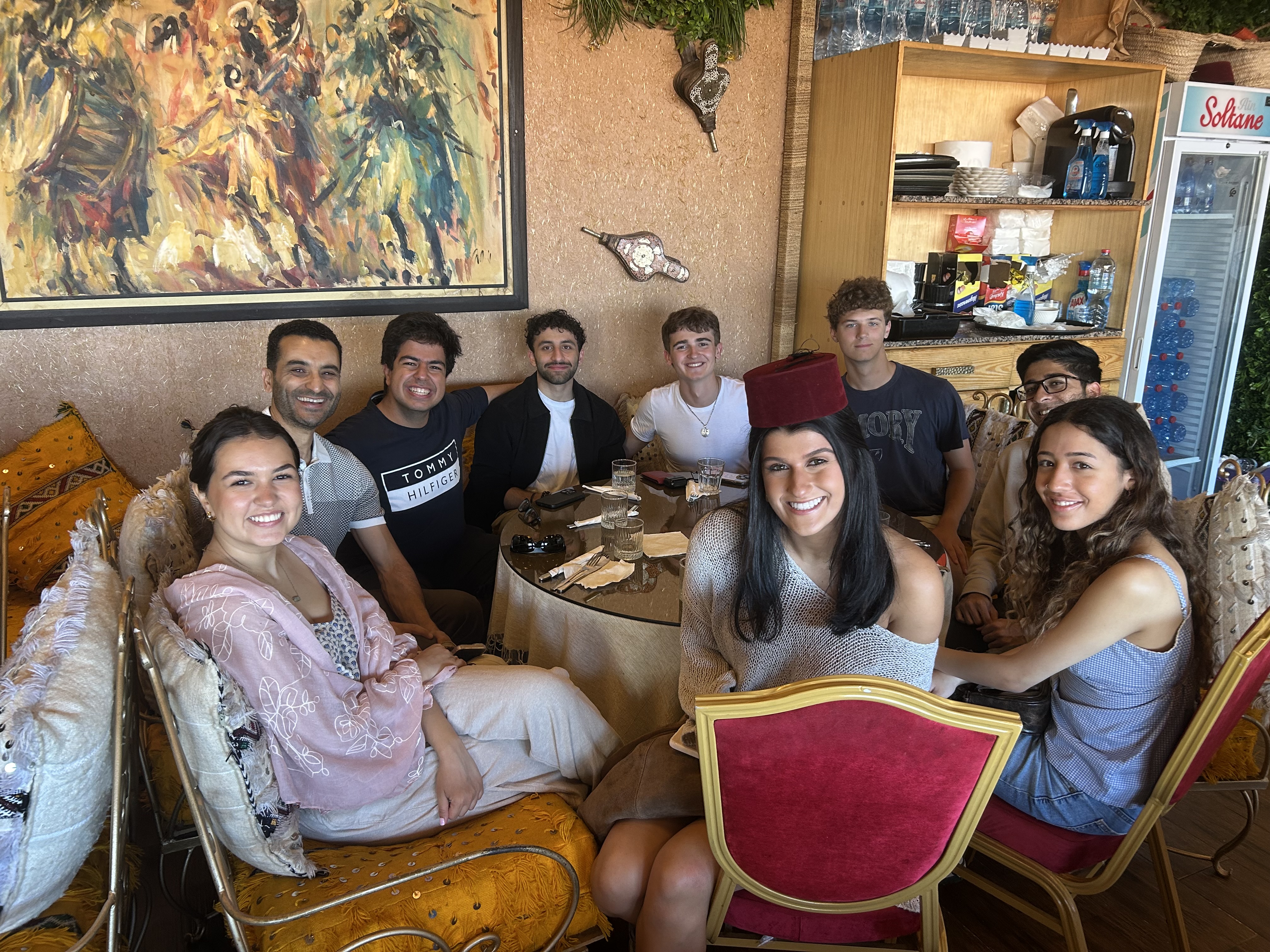Faculty Spotlight: Dr. Anouar El Younssi

Oxford’s Dr. Anouar El Younssi doesn’t just teach classes—he builds bridges. As an associate professor of Arabic and Middle Eastern Studies, he immerses his students not only in the words and melodies of the Arabic language but also in the cultures, customs, histories, and cuisines of the Middle East and North Africa. He is passionate about setting his students on a path to global citizenship.
We asked Professor El Younssi how studying the liberal arts at Oxford promotes openness, empathy, and tolerance in an increasingly complex world
Q: Oxford students are known for their strong academic skills and willingness to explore new ideas. How does your approach to teaching challenge and support them?
Given today’s increasingly interconnected world, it is important—necessary even—that students see the relevance of their learning to real-world topics and issues, which then enables them to connect more fully with the courses they take. For example, I ask students in one of my classes to research a current event from the MENA (Middle East and North Africa) region that has resulted in public discussion/debate/controversy; connect it to one (or more) of the topics in the syllabus; and then give a presentation to the class. This dimension of learning equips students with the knowledge and skills that make it possible for them to make a positive impact in the real world.
Q: Why is it important for students to study languages in the age of so much digital content and AI translators?
Cross-cultural competence and global citizenship are key tenets of my teaching. I emphasize four key skills (speaking, writing, listening, and reading), but also take culture to be an essential component of studying a language, one that complements and cements the other skills. Culture is the spirit that animates language, and it is essential to developing mutual understanding and respect for diversity. I use a series of Arabic-language videos that showcase the everyday life of an Egyptian-Palestinian American family based in New York City, as well as their relatives in Egypt. In this case, technology helps students build and enhance their cross-cultural competence and global citizenship. But while AI and other digital and audio technologies can supplement learning, it is only through interaction with other human beings that we can add the meaning and depth that contribute to intellectual and emotional growth. This means studying a language from a human instructor and alongside other students, which creates a personalized and dynamic learning experience.

Q: You also teach World Literature. How have you seen your students grow through the reading of works from a variety of cultures?
The great thing about literature is that it personalizes the experience of learning about a particular society, rendering it approachable and familiar. In my classes, I’ve seen students move beyond a mere understanding of a character or group of characters from a different cultural background and reach a level of connection and empathy with them. This is critical to expanding their worldviews.
Q: You received your undergraduate education in Morocco. How does the education system there differ from what we offer in the U.S.?
While the humanities and social sciences are generally taught in Arabic, the sciences, medicine, engineering, and other technical disciplines are usually taught in French and some English. One of the things that’s different about education in Morocco is that, for the most part, final exams alone determine whether a student passes and moves on to the next year or goes back to start all over again—although there have been changes in the last two decades or so. This would cause students a high level of stress and anxiety. On the bright side, higher education remains free in public universities in Morocco.
Q: Early research opportunities are one of the hallmarks of an Oxford education. What kinds of projects have your students participate in?
Since joining Oxford in 2018, I’ve consistently involved students in my research and helped them engage with the Arabic-speaking/Muslim world and beyond. These research projects have covered a wide range of topics, such as how the migrant/refugee crisis of 2015 fueled the rise of anti-Muslim right-wing politics in Europe; the symbolism of the Nile and Yellow River in literature; cultural movements in Morocco and North Africa; how the Arab Spring/Winter impacted LGBT culture in the region; and how Muslin reform voices have resonated in the U.S. and other Western countries. I hope to involve even more students in my research in the coming years.
Q: You have taken Oxford students to Morocco for field research. Why is it important for students to experience learning outside the classroom?

“Part of the beauty of this trip was getting to see first-hand and interact with many of the topics that we had learned about in class. …”
“While brief, my most remarkable incident of the trip happened in Ksar El Kebir through my conversation with a young woman around 17 or 18 who recently graduated high school and is preparing to go to China for university in the fall. The conversation we had about what she’ll miss most about Morocco made me reflect deeply on my own attachment to my family’s food and cultural customs….”
Q: What hobbies or interests do you pursue outside the classroom?
I like playing (and watching) soccer. I currently play in a league called the DCFC—the Decatur City Football Club. My favorite professional club is FC Barcelona. I also enjoy biking and playing with my dog CousCous, a labradoodle named after Morocco’s most well-known dish.